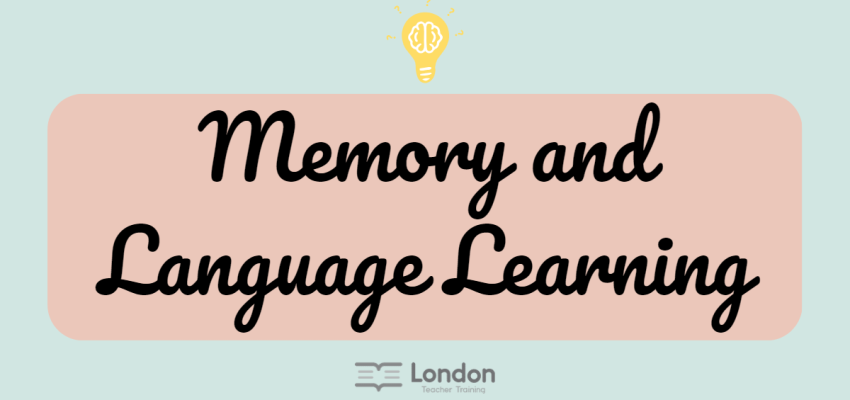Saturday, April 29, 2023

“You can’t remember how to say Toldo in English? But, we saw it yesterday!”. Raise your hand if you have ever said something like that. Sometimes not being aware of how memory works might make us think that students don’t remember something, purely because they didn’t make the effort to learn it. And you are right in thinking that… most of the time. However, research shows that storing a word in long-term memory1 is not as easy as it might seem. First of all, how much we remember depends very much on the initial encoding process, and at that stage, the teacher is more responsible for the learning than the learners themselves.
Effective encoding2 depends on a number of factors. The most important one is the richness of the connections made when a word is learnt. Whenever a new piece of information enters the working memory3, areas of existing knowledge are activated in the long-term memory and the new data searches for links to reinforce the memory trail formed at the encoding stage. Let’s take the word ‘toldo’ for example. The English word for that is ‘awning’ and if we just see them together, we might remember it later on, or we might not. However, students will be much more likely to remember it if they think that ‘awning’ is very similar to ‘yawning’. After that, the teacher can gesture ‘yawning’ to facilitate the retrieval of ‘awning’ from students’ long-term memory.
If there is one key factor in being able to remember new information, that’s active retrieval. New language needs to be revisited frequently, and it needs to be used in different ways if we want to store it permanently in the long-term memory, strengthening the links between the new language and the existing data. Also, by adding an element of difficulty when the new language is learnt, this learning becomes more memorable: at the end of the day, the old ‘no pain, no gain’ might be more relevant than we thought.
When the teacher retrieves a new piece of language is also something to consider. According to research4, a new word is more likely to stick in the long-term memory if the teacher doesn’t get students to repeat the word immediately after, for example, showing them a picture. Instead, it’s better to wait for 4 seconds before they hear and repeat the word. In this way, you are not interfering with the encoding process and the new word will be much more likely to be remembered.
Another important factor in remembering new language is sleep. In a test carried out by Dumay & Gaskel in 2007, they saw that new words were more likely to be remembered after a night’s sleep. Not only that: words learnt in the morning were more effectively retrievable on the following morning, after sleep had occurred. And you thought that your students were just sleeping in class: they were in fact storing the new words in their long-term memory!
There are a lot of different activities we can use in class to help students memorise words. For example, you can use images containing some degree of detail to get students to memorise them and ask each other about those details, or you can get students to produce the longest sentence they can by repeating what their partner said and adding one more word each time. Our minds are particularly gifted at remembering visual memories and we can use the Loci Method (aka the mind palace or how Sherlock accessed his memories in the great BBC series) to exploit that. Students just have to imagine a place (such as a palace) where they can store their memories. Each room will contain one piece of information they want to remember. The only thing they have to do, is go back to the place and see what’s in each room. Magic!
So just to help you remember, here is a summary of the most important points:
And as far as I can remember, this is all I wanted to tell you about Memory and Language Learning. Or it might just be that I’m getting old and my memory is not what it used to be anymore. Anyway, if you excuse me, now I’m going to get some sleep: I’ve heard it’s great to help you remember things!
1 the memory process in the brain that takes information from the short-term memory store and creates long lasting memories.
2 learning a word by noticing it and relating it to past knowledge.
3 temporarily accessible information that has a limited storage time.
4 Kang et al, 2013